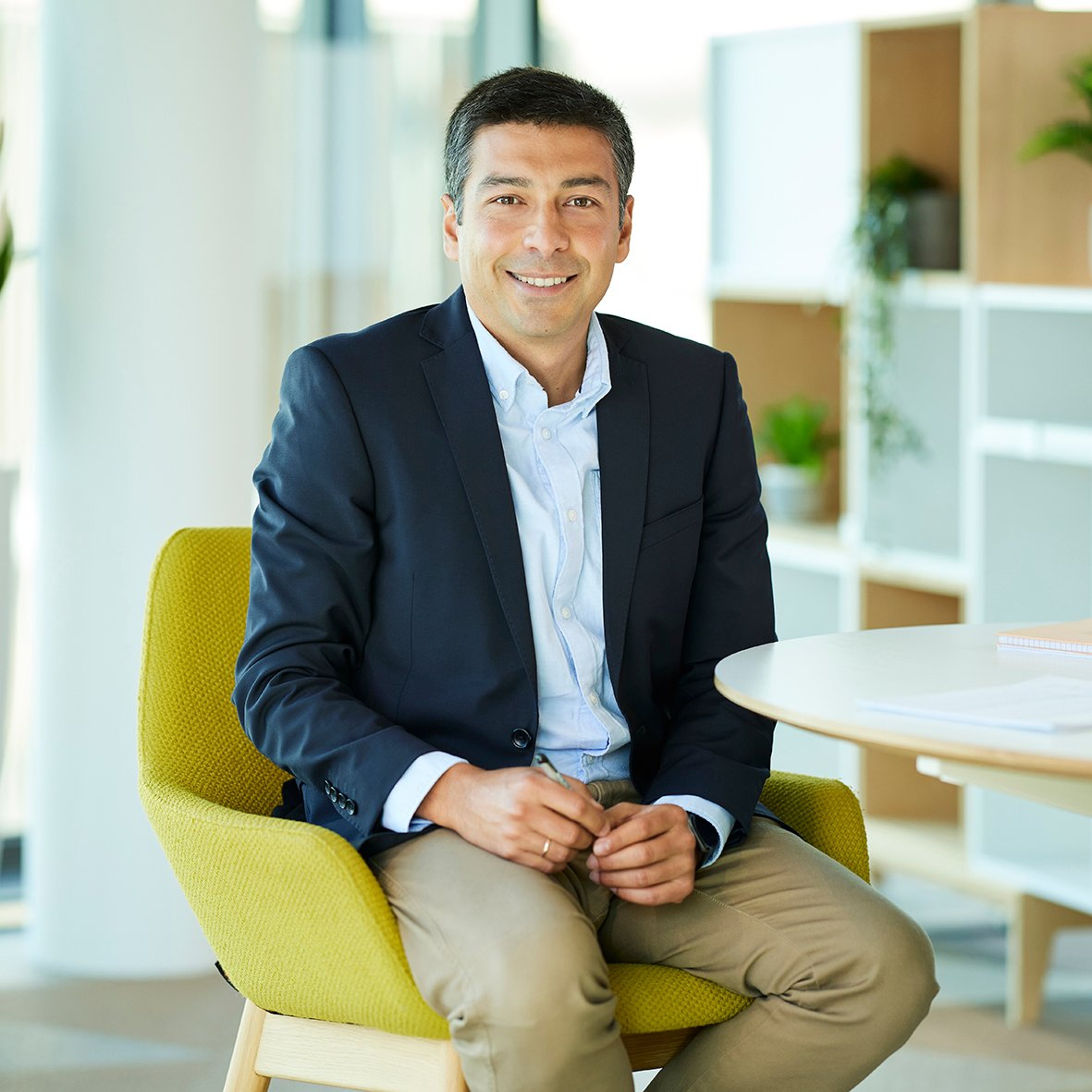As with any investment, your capital is at risk.
Mona Siddiqui (MS): Let's now turn to our scholars, Sheikh Mohamed Ali Elgari, who is a member of numerous shariah boards of Islamic banks, Sheikh Muhammad Ahmad, who is a shariah scholar in various parts of Islamic finance, and Mansoor Ahmed, the general manager of the Shariyah Review Bureau.
Sheikh Mansoor, tell us about the Shariyah Review Bureau, its aims, its reach, and its respect for diversity of thought, which as you know is an essential part of Islamic law.
Sheikh Mansoor: Thank you Mona for having us. With regards to the question, so Shariyah Review Bureau is a shariah advisory firm that works in multiple sectors of the financial industry. So we serve banks, insurance companies, asset managers, family offices, and fintechs. The business model is designed to operate as a single global partnership, where we help clients meet their shariah variant, shariah assurance needs, like setting up shariah boards, providing administering shariah certification, doing external shariah audits, internal shariah audits, and related services.
The most powerful resource a shariah advisory firm possesses is their scholarly resource, the shariah scholarly resource. So over the years, we've continued to scale up our network and created a powerhouse of 37 scholars from around 17 countries. This network actually helps us effectively distribute the workload in terms of meeting our review and certification turnarounds, whether we're looking at national or international transactions.
I think what we can speak about from Baillie Gifford is with respect to our engagement. What is the specific role that we are playing? Our role is firstly to identify and set up the scholars, which we have created a shariah board of Sheikh Dr. Mohamed Ali Elgari and Sheikh Muhammad Ahmad Sultan, who are primarily responsible for the supervision of all activities that take place within the Islamic Global Fund of Baillie Gifford. Once all the documentations have been reviewed and certified, the next step is to have an ongoing supervisory process in place where all the equities that are being traded or any equities that may fall within a grey area are discussed, deliberated upon, and then are basically approved, qualified or disqualified by the scholars, depending upon the circumstance. The last part of the relationship is the shariah audit, where at least once in 12 months, we review all the executed transactions under the fund, and then we issue a shariah assurance report. So that's, in a nutshell, the main role that we play in our engagement agreement with Baillie Gifford Funds.
MS: Thank you, thank you very much for explaining that. Can I turn to you, Sheikh Elgari. The moral world view means we can't approach investing primarily from a technical and legal and financial viewpoint. How holistic do you think is Baillie Gifford’s Islamic Strategy in its view of investing?
Sheikh Elgari: So in shariah we have the legal part which is do and don't do, it is the halal and haram, the permissible and non-permissible. So over the last decades or probably more, the Islamic equity investment criteria was based on haram and halal, on do and don't do, on permissible and non-permissible. In other words, it is a mechanism, it is a system to select the equities that are halal. And of course, for a Muslim who is keen to follow the tenets of shariah, he is only allowed to invest in the companies that are halal, not haram.
But from shariah point of view, this is the minimum. This is what is required from every Muslim. But there is a bigger picture. There is the objectives of shariah, or what is called Maqasid Al-shariahh, where one should go the extra mile, caring about the general good. What is called Maqasid Al-shariahh, preservation of the religion, preservation of social peace, preservation of wealth. I mean equality between people, prevention of corruption. In other words, the shariah has to deliver objectives, and these, while it is not responsible of every individual but the collection of individuals, if they are keen to reach it, they have to go beyond the halal and haram, beyond the permissible and impermissible. So Baillie Gifford is actually going beyond halal and haram. It is internalising certain objectives which are in line with the shariah. They're not against shariah, nor they are foreign to shariah because part of our shariah. All what we hear now about social responsibility and governance and this, if we look to our shariah, we find them all there from the prophet's time. We have to preserve the environment. We have to, even if something that is halal, but through the use of people, it starts creating harm, by shariah becomes haram.
MS: Thank you, that's very helpful. Can I turn to Sheikh Ahmad, talking about objectives. One of the arguments is that the essence of a moral economy isn't just my own material and spiritual flourishing, but that of the society around me. So how important is it, do you think, to ask the question of legacy and societal contribution for investors?
Sheikh Ahmad: Thank you very much for having me here. With regards to your question, I believe something that has to be addressed in order to understand this question first is, I guess, the topic of ethics and morals. What are ethics and morals when it comes to Islam? And what has to be understood here that both have been laid down by our creator, Allah Subhanahu Wa Ta'ala, for his creation. This necessarily would also apply, for example, to activities like investing. Investing into certain companies, investing into certain assets with the intention, for example, just to grow wealth should never be done with a feeling of a gluttonous overpowering of each and everything. Gluttony is something that is very much, for example, discouraged in Islam. You should not just exploit and use everything up and destroy just in order to fulfill your own base desires. That is something that is very much discouraged. Hence, any activity that would result in the opposite, growing of wealth for the community, protecting of the environment, treating nations the way you would want to be treated, even simple activities like investing into venues that serve these kinds of purposes are necessarily something that is encouraged, that is something that is to be looked upon. It is our responsibility to make sure that the bounties of Allah Subhanahu Wa Ta'ala are protected and preserved for the people that also come after us.
MS: Well, thank you so much to the scholars who joined us and gave us their insight into shariah compliance. Let me turn back to you, Kave. You heard all this. Why do you think this will appeal to ordinary Muslims and what gives you confidence that this strategy will succeed?
Kave Sigaroudinia (KS): Well, I certainly can't give any guarantees about success. But what I can say is that I have a lot of confidence that we have got the inputs right. So we are leveraging off a tried and tested investment philosophy that has worked successfully in a number of areas over very long periods of time. And we've come up with a strategy that has been designed from the bottom up for Muslim investors. And we have the opportunity to deliver this strategy in the context of a partnership structure and a culture that gives us all the support and encouragement we need for success.
MS: And what would success look like to you Tolibjon?
Tolibjon Tursunov (TT): Let me add a couple of more points in terms of the ingredients that are going in here. So in addition to the skill set and the cultural points that Kave has made, I would add the ambition, this drive that we have driven by this feeling of obligation to create a first-class product for the Muslim population of the world, a product that allows them to participate in the wealth creation that is being done by some of these greatest companies in the world. Success to us would be that feeling in the deathbed of having achieved something different, having brought the industry back, having taken the industry to a very, very different level to where it is now, hopefully a better level. And with Allah's will, we will succeed.
MS: Gentlemen, it's been fascinating. Thank you so much. I found it to be an eye opener, not only about shariah compliance, but about the motivation and the passion that's gone behind this.
KS: Thank you.
TT: Thank you.
MS: Well, we've come to the end of this discussion, and I'd like to thank all my guests for shedding light on the reasons why Baillie Gifford have launched their Islamic Strategy. These issues are complex, but I hope you found this conversation useful. And if you want to know more, please contact Baillie Gifford, either through their website and the contact details you'll find there, or by sending an email directly to islamicglobalequities@bailliegifford.com. Thank you for joining me and goodbye.
Risk factors
This communication was produced and approved in March 2025 and has not been updated subsequently. It represents views held at the time and may not reflect current thinking.
The views expressed should not be considered as advice or a recommendation to buy, sell or hold a particular investment. They reflect opinion and should not be taken as statements of fact nor should any reliance be placed on them when making investment decisions.
This communication contains information on investments which does not constitute independent research. Accordingly, it is not subject to the protections afforded to independent research, but is classified as advertising under Art 68 of the Financial Services Act (‘FinSA’) and Baillie Gifford and its staff may have dealt in the investments concerned.
All information is sourced from Baillie Gifford & Co and is current unless otherwise stated.
The images used in this communication are for illustrative purposes only.
Financial Intermediaries
This communication is suitable for use of financial intermediaries. Financial intermediaries are solely responsible for any further distribution and Baillie Gifford takes no responsibility for the reliance on this document by any other person who did not receive this document directly from Baillie Gifford.
About the speakers

Tolibjon is a founding member of the Baillie Gifford Islamic Equities Strategy and is a co-manager of the Japan Growth Strategy. He joined Baillie Gifford in 2011 and has spent time working on regional as well as large and small cap global equities teams. Prior to joining Baillie Gifford, he worked in the corporate finance department of an FMCG company, before founding a price comparison website in Central Asia covering insurance, banking, and telecom sectors. Tolibjon graduated LLB in Law from Queen Mary University of London in 2008 and is a CFA Charterholder.

Kavé is an investment manager in the Positive Change Team. He joined Baillie Gifford in 1999 and became a partner in the firm in 2012. He was previously Head of Research in the UK Equity Team and an investment manager in the International Growth Team. Kavé graduated MA in Economics from The University of Edinburgh in 1998.
Related insights

The case for private growth equity
How companies like Stripe, Databricks and SpaceX are shaking up growth trends typically dominated by public markets.April 2025
Video|38 minutes
US Alpha Q1 update
The US Alpha Team reflects on recent performance, portfolio changes and market developments.April 2025
Video|9 minutes
US Equity Growth Q1 update
The US Equity Growth Team reflects on recent performance, portfolio changes and market developments.April 2025
Video |10 minutes


